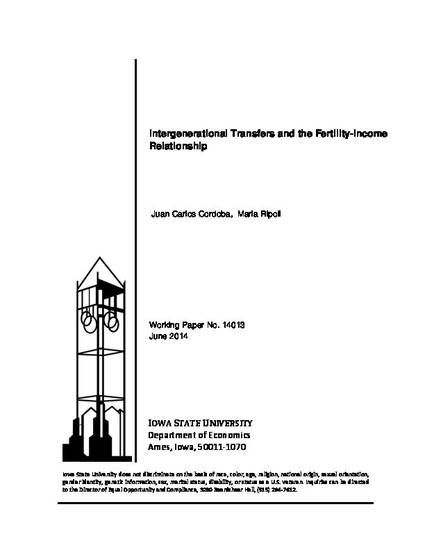
Extensive evidence from cross-sectional data reveals a robust negative relationship between family income and fertility. This paper argues that constraints to intergenerational transfers are crucial for understanding this relationship. If parents could legally impose debt obligations on their children as a way to recover the costs incurred in raising them, then fertility would be independent of parental income. In this case, if the present value of a child’s future income exceeds the cost of raising the child, as the evidence suggests is the case, parents would have incentives to raise as many children as possible in order to maximize rents. A relationship between fertility and income arises when parents are unable to leave debts behind either because of legal, enforcement, or moral constraints. We also derive the conditions under which the fertility-income relationship is negative. Notably, an intergenerational elasticity of substitution larger than one is required. In this case, parental consumption is a good substitute for children’s consumption making it optimal for income rich parents to have fewer children.
Available at: http://works.bepress.com/juancarlos-cordoba/3/
